European Gaming News
Exclusive interview with Alex Henderson(Head of AML at The Ritz Hotel Casino), speaker at Prague Gaming Summit
Dear readers and subscribers,
Thank you for following my interview series and for sharing these information with your colleagues and partners. If you would like to be featured in an upcoming interview, please send me an e-mail to [email protected] and I will happily get back to you!
Moving forward, I would like to introduce my latest interviewee, Alex Henderson, who is the current Head of AML at The Ritz Hotel Casino and also a speaker at our upcoming live event/conference in Prague.
Thank you for your time and I hope you will gain vital information needed for your business in regards to AML and AMLD 4.
I would like to thank you for spending time to answer our questions. First I would kindly ask you to shortly introduce yourself.
Alex: I am the current head of AML at one of the UK’s top Mayfair casinos as well as a trainer for the global leader in AML/social responsibility training for gambling operators (AML Gaming Solutions). I have worked for the past 7 years for the National Crime Agency as a financial investigator and within the AML expert witness team as well as within covert operations where I portrayed many roles within counter terrorism, drugs. The most relevant to my current career is that I portrayed the role of an international money launderer.
Would you please speak about the effects of AMLD 4 on the gambling industry in geneneral and in the UK in particular?
Alex: My opinion is that in general the 4th MLD has had little impact for some operators but major impact for many others (if they have made the appropriate changes). The main impact came from the requirement to “know your customers” better which for many land based operators it is not a huge change, as many of them already go a long way to know about their clientele. For many online operators this was a tough change as my opinion is that many operators do the bare minimum when it comes to due diligence. Overall, I think that many operators do not even have measures in place to comply with law from 2002 (proceeds of crime act 2002), so I would not expect those operators to be doing anything to comply with law that has been in place less than 10 months. The reason I say this is because many of the MLRO’s (money laundering reporting officer) or AML managers I speak with know very little about money laundering/financial crime or their roles and responsibilities and the relevant laws and regulations.
You advise large number of organisations with regards to their AML compliance programmes. According to your experience what are the most frequent problems, issues regarding this topic?
Alex: Lack of knowledge is number 1. I am not just referring to the lower level employees but with MLRO’s and AML managers, the level of knowledge sometimes scares me. I have met with MLRO’s who did not know how to input a SAR (Suspicious activity report), some did not know basic money laundering techniques and how to identify them… then these MLRO’s are entrusted to protect the business and oversee staff training, so it is effectively the blind leading the blind. I speak with some businesses who tell me that they are low risk for money laundering or that criminals do not use their business…. When I tell them that I myself have actually laundered money through their business or have spent criminal proceeds through their business they have a sudden change in attitude, which for me is a good thing. Many gambling employees have not been given the basic knowledge for preventing financial crime which is the fault of the operator. I enjoy giving staff this knowledge and empowering them to detect criminality and prevent those criminals using their businesses.
What social responsibilities does preventing money laundering include?
Alex: In many cases, social responsibility and AML go hand in hand. If an operator has good AML processes in place they will often detect problem gambling concerns and vice versa. We have seen in the recent enforcement action that when an operator is punished for their lapses in social responsibility they are also punished for their lapses in AML, this is because operators generally do not do enough to protect their customers. If an operator has done enough to determine a customer’s Source of Wealth (SOW) they should know when that customer is spending more than they can afford. Therefore if that customer is spending outside of their known income, an operator should be doing extra checks to determine if the customer is spending more, because they either have a gambling problem or they are spending more because they also have some illegitimate funds that have not previously been uncovered.
There are new regulations in this domain. Will you please speak about these and their effects?
Alex: Operators are expected to do more, and rightly so. The expectation from the regulator is that both remote and non-remote operators need to step up and start protecting customers. But this is difficult and causes a huge conflict of interest amongst operators; on one hand they are trying to run a profitable business, keep customers gambling and spending money, on the other hand they are expected to stop customer if they gamble too long or spend too much money. The punishment for not protecting customers is too soft in my opinion. The gambling commission should be taking licences and giving hefty fines, at the moment operators get away with doing very little to protect customers. Operators would do a lot more if they genuinely felt their licence was on the line or that they would be fined excessively. If we take the banking industry as an example, it took HSBC getting fined £250m for all the banks to start carrying out adequate AML due diligence, before the HSB fine banks always done the minimum because they knew any fine they received would be worth paying. I think the gambling commission is definitely moving in the right direction but they need to send out a clear message, the way to do that is to start making examples of operators.
What about the UK? Where is it heading with the new regulations?
Alex: I think the gambling commission is going to get tougher and tougher on operators until the operators eventually start looking after their customers. UK operators need to do more, especially online. There is a poor knowledge of AML and even worse knowledge on problem gambling when it comes to online operators. Staff needs to be given proper training so they can protect the businesses and their legitimate customers. I think more regulation will keep coming and will keep getting harder until operators take it upon themselves to start protecting customers.
What do you think what is gaming considered by the people of the UK today; are they satisfied with the new changes?
Alex: Public trust in gambling has drastically decreased; this is because of all the negative media on problem gambling and money laundering. I think the public are happy that the industry is under such scrutiny because financial crime and problem gambling effects so many people. Operators have the power to regain trust from the public and I do think all the changes the commission and the government are trying to make will help to regain public trust once again.
What would you change in the present state of the British gambling market?
Alex: I would make it a requirement for operators and all staff to undertake adequate and relevant training on both AML and problem gambling. Many operators put staff through poor internal courses or e-learning programs which is not good enough. AML Gaming Solutions (AMLGS) are made up of AML experts who have worked for law enforcement, government and regulators. They deliver face to face training to all staff from the ground all the way up to the CEO which is highly important. Every operator should be undertaking training from experts such as AMLGS. It is vital for staff to hear from professionals and to understand what a vital role their play in preventing financial crime and protecting customers
What is your personal opinion about gambling industry in general in Europe?
Alex: I think that the industry is moving in the right direction, the constant updates in law and regulation are a good thing and operators need to embrace the changes. I do believe that from compliance perspective more needs to be done by operators, but we are getting there slowly. The industry is going to continue to grow; it is this growth that has brought the attention of various governments and law enforcements. Five years ago the industry was not on anyone’s radar but now every government in the world has taken an interest. This scrutiny has brought a well-deserved pressure to operators who have for many years failed to prevent financial crime; I think the message is clear: step up and do more or be on the receiving end of some very harsh penalties.
To hear more about the subject and meet Alex in person, make sure you register and attend Prague Gaming Summit 2018, held on the 29th of March at Andel’s by Vienna House Prague.
Interviewee profile:
Alex specialises in preventing money laundering in its varying forms and has a very unique insight that is hard to find.
Alex Henderson is the current Head of AML at The Ritz Hotel Casino, one of the worlds most prestigious casinos. Alex has worked for the National Crime Agency (NCA) as part of the AML expert witness team and has been involved in multiple high end money laundering investigations. As well as having worked for several years as part of the NCA’s AML expert witness team, Alex spent much of his NCA career working as part of the covert operations unit (Undercover operations) portraying many different roles, including the role of a high end money launderer. This unique insight into the mind of a criminal allows financial institutions to see the vulnerabilities and risks from a new angle. Alex advises a large number of organisations with regards to their AML compliance programmes and has lectured extensively in the UK and across Europe.
EXPERIENCE
• Successfully delivered AML training workshops to a large banking group with over 4000 employees
• Advises money service bureaus, banks and regulated businesses on their AML risks
• Operated in a covert capacity in various operations across the UK, portraying the role of a money launderer amongst many others
• Involved in many high profile investigations involving trade based money laundering and sector focused laundering
• Advised leading organisations on the financial crime risks and vulnerabilities impacting their business
• Delivered training to multiple financial institutions and developed staff knowledge of AML across over 100 organisations to date
• Leading the AML team at one of London’s top casinos, handling high risk members and overseeing the due diligence of the business customer database
• Advised a major bank in regards to their AML fine and enforcement action on best practice moving forward
• Involved in various counter terrorism and AML Law Enforcement operations across the UK
Source: European Gaming News

European Gaming News
Could the Gambling Commission ban wagering requirements?
Wagering requirements; whether you love them or hate them, with the Gambling Review well underway, there’s never been a better time to debate if they still have a place in modern gambling and whether the upcoming review will ban them once and for all. But first, let’s look at their development and why they are a contentious issue in the industry.
What are wagering requirements?
Wagering requirements are a common term and condition attached to a bonus that prevents players from taking a promotion and withdrawing it immediately. They are applied differently by each gambling brand. Some, like PlayOJO, Paddy Power, MrQ and Betfair, have revolutionised the casino scene by offering no wagering bonuses. In contrast, others take the predatory route and list bonuses with up to 100x requirements (the average is around 30x).
The requirement is the amount a player must wager at the casino before any winnings made with a bonus are valid for withdrawal. In the case of a £100 bonus, a 30x requirement would mean a player must wager a total of 100×30=£3,000 before they could withdraw any winnings. Most players would easily decimate their winnings before fulfilling the condition and, as most bonuses expire within 7-14 days, may well be forced to play for periods, or at times, they otherwise might not.
Why do wagering requirements exist?
In the early days of online casinos, bonus hunting among players became widely popular. It led to forums where players shared information on where and how to profit from the best welcome bonuses, earning money from the available offers available and never playing at a site again.
As casinos began to notice players taking bonuses and withdrawing without using them fairly, they combatted the practice with wagering requirements and other terms, such as the ability to withdraw a bonus and any winnings made if an account was suspect of this activity.
However, with no limits or official licensing rules to regulate wagering requirements at that time, things soon got out of hand as operators set high limits that were and still are unattainable to most players. Additionally, in many cases, the terms and conditions were not clearly displayed or explained, leading to the confiscation of bonuses and winnings without players understanding how or why they’d fallen foul of the casino’s rules.
Wagering requirements under fire with UKGC
By 2014, and following a flood of player complaints, the Gambling Commission weighed in, creating the Gambling (Licensing and Advertising) Act which prescribed operators were to advertise their bonus terms and conditions clearly and explain them to players. This led to some reducing their requirements to more feasible levels. However, not all operators followed suit, hence why we’re still discussing wagering requirements today.
More recently, in February 2022, the UKGC set its sights on reforming wagering requirements again, issuing new guidance regarding fair and transparent terms and practices, which acknowledged that wagering requirements could lead to excessive play, not in line with social responsibility rules for operators.
The new guidance rules cited that licensees used potentially unfair terms, with examples including:
- “terms that allow licensees to confiscate customers’ un-staked deposits
- terms regarding treatment of customers’ funds where a licensee believes there has been illegal, irregular or fraudulent play
- promotions for online games that have terms entitling a licensee to void real money winnings if a customer inadvertently breaks staking rules
- terms that unfairly permit licensees to reduce potential winnings on open bets.”
It also stated that the Commission was aware of:
- “terms and conditions that are difficult to understand
- welcome bonus offers and wagering requirements which may encourage excessive play.”
While the guidance did not contain rules for abolishing or limiting wagering requirements, they instructed licensees to review their terms and conditions to ensure they fit consumer protection laws and that; “The LCCP requires rewards and bonuses to be constructed in a way that is socially responsible. Although it is common practice to attach terms and conditions to bonus offers, the Commission does not expect conditions, such as wagering requirements, to encourage excessive play.”
Will wagering requirements be banned?
With the Gambling Review white paper currently overdue and keenly expected by all industry stakeholders, many wonder if it will cover wagering requirements or, more specifically, exclude them from casino practice. The Gambling Review aims to update the 2005 Gambling Act, fit for the modern age, and wagering requirements would undoubtedly slot into the remit of what’s being discussed, which includes greater player protections and affordability checks.
While it’s clear that some big-name operators and affiliates like No Wagering are pioneering the way in bringing zero wagering bonuses to players, many sites have not followed suit. This is despite clear evidence that players favour fairer bonuses (PlayOJO is one of 39 brands operated by the same parent company, it is the only one with zero requirements, and it’s the most successful of all, according to the company).
Realistically, we’re not sure that the new gambling regulations will ban wagering requirements completely (as we covered earlier, they do exist for a reason), but it certainly wouldn’t be beyond the imagination for there to be a maximum cap applied in the view that excessive requirements equate to excessive play.
What’s next for operators and bonuses if wagering requirements are banned?
Bonuses are one of the most important factors for players in picking between casino sites, and they make players feel lucky to score something for free straight off the bat (even if the wagering requirements mean this is not really the case).
If wagering requirements are banned, operators unwilling to offer bonuses without wagering requirements will have to return to the drawing board and reimagine rewards, especially welcome offers. Alternatively, they could begin competing based on other USPs, such as focusing more on the casino product to pull in the punters by offering unique games, making space for indie developers, having instant withdrawals, or gamified loyalty benefits and better loyalty clubs.
Moreover, it would present a fantastic opportunity for remote operators to move away from the tired system of matched deposit bonuses towards more exciting and fresher ideas like promo wheel spins, mystery gifts on first deposits, prize draws and so on. With brands including PlayOJO, Paddy Power, MrQ and Betfair already doing this, operators do not lack a blueprint to success, just the gumption to embrace a new model.
Bulgaria
Betway Bulgaria officially launches, offers live and bet-builder options
Another company has officially launched its activities in the growing niche of online betting in Bulgaria. But here we are not just talking about another operator licensed by national institutions, but about a leading brand worldwide. Betway is one of the largest bookmakers in Europe and globally, and the fact that it already offers its services in Bulgaria speaks positively about the development of the gambling business in the country.
Indications of an increase in the size of the industry appeared last year, when several operators received a permit to operate under Bulgarian jurisdiction. It is unlikely that this process will end with the official launch of betway bulgaria, rather the brand entering the country can be perceived by international operators as a positive assessment of the market in Bulgaria. What can we find at Betway besides the obvious – increased competition and of course more choice for consumers?
What do we find in the sports section?
Sports betting – this is the leading sector of the company, which started operations in 2006. The brand is associated with a number of teams in Europe such as Tottenham, Atletico Madrid, Leicester, Alaves, Belenenses, Werder, etc. Of course, the top championships in Europe are present in the latest betting platform, but that’s not all. Betway offers the opportunity to make predictions at less popular UEFA championships. The fans of the Bulgarian championship have options too. All matches of the First League are present in the bookmaker’s menu, and are offered with dozens of choices for each of them.
Real-time bets and long-term combinations
Live bets are a big thrill for many players. This option is present at Betway, and this also applies to the mobile version, of course. It is not difficult to detect current events – they come first when loading the platform. And with them the bookmaker really comes up with interesting offers, some of which are rare on the Bulgarian market. The outcome of the bets become clear in literally seconds if the next goal market or one of the performance options is selected.
In addition, the company accepts predictions with a much longer horizon. It is now standard to bet on who will be the champion in England, Spain, Italy or Germany. However, there are also specific markets and selections for certain teams – will Barcelona take the trophy this season, will Liverpool reach the final in at least one of the tournaments in which it participates, etc. And if users don’t find what they’re looking for in these offers, they can always turn to the betting menu. The bet-builder is still limited to one match, from which we can choose two or more selections until the desired odds are formed. This is the most appropriate way to optimize the bet according to personal preferences and therefore it is increasingly preferred by the players.
Betway’s first steps on the Bulgarian market are impressive. And this is just the beginning, we can expect even more in the near future.
European Gaming News
EveryMatrix inks RGS Matrix agreement with Wild Boars
EveryMatrix announces the second RGS Matrix partnership with Wild Boars, newly launched gaming studio that aims to bring creative storytelling and a fresh feel to the gaming industry.
Launched in 2019 as EveryMatrix sixth standalone solution, RGS Matrix enables gaming development teams to distribute, manage, and report upon a proprietary game product portfolio.
This ‘out of the box’ remote gaming server was built on an open architecture and caters for outstanding player experience, consistent deployment, and quicker content integration.
Mathias Larsson, Managing Director of RGS Matrix, says: “This is our second RGS Matrix agreement and it brings me a lot of joy to know that our solution starts gaining momentum in the market. Our remote gaming server aims to help the new generation of game builders by providing all the means to create, design, distribute and manage games.
“The team of Wild Boars is experienced, skilled and highly creative. I am looking forward to seeing their games live and appreciated by players in many countries.”
Oleksandr Yermolaiev, Managing Director of Wild Boars, comments: “We truly believe that choosing a right partner is crucial for success. For us, RGS Matrix and its remarkable team is just that partner. We are excited to use EveryMatrix solution, focus on what we do best and bring our innovative games to a wide range of operators, territories and players. RGS Matrix is dashing ahead and we are happy to join the ride.”
RGS Matrix powers slots and table games, and is currently certified for Malta, Latvia, Lithuania, Estonia, Sweden, Spain, Denmark, Romania, and Colombia, with many jurisdictions to come in the upcoming years.
-

 Latest News2 months ago
Latest News2 months agoFairplay Exchange signs as new sponsor of Stephen Hendry’s Cue Tips
-

 Latest News2 months ago
Latest News2 months ago2 PEOPLE CAUGHT OPERATING ILLEGAL ONLINE GAMING SITE
-

 Latest News2 months ago
Latest News2 months agoPlaytech Extends Partnership with BoyleSports Until 2028
-

 Latest News2 months ago
Latest News2 months agoWazdan partners with 711.nl for significant expansion in the Netherlands
-
Latest News3 months ago
The Gold Standard in Affiliate Programs: How Partners 1xBet Dominates the iGaming Market
-

 Latest News3 months ago
Latest News3 months agoOneCasino Partners with Delasport to Also Conquer Sports Betting in the Netherlands
-

 Latest News2 months ago
Latest News2 months agoStarGames Named Premium Partner of the International ADAC Truck Grand Prix 2024
-
Latest News2 months ago
Casino Crypto Giant Bitline Partners with Ciphertrace for Enhanced Compliance in Digital Asset Transactions














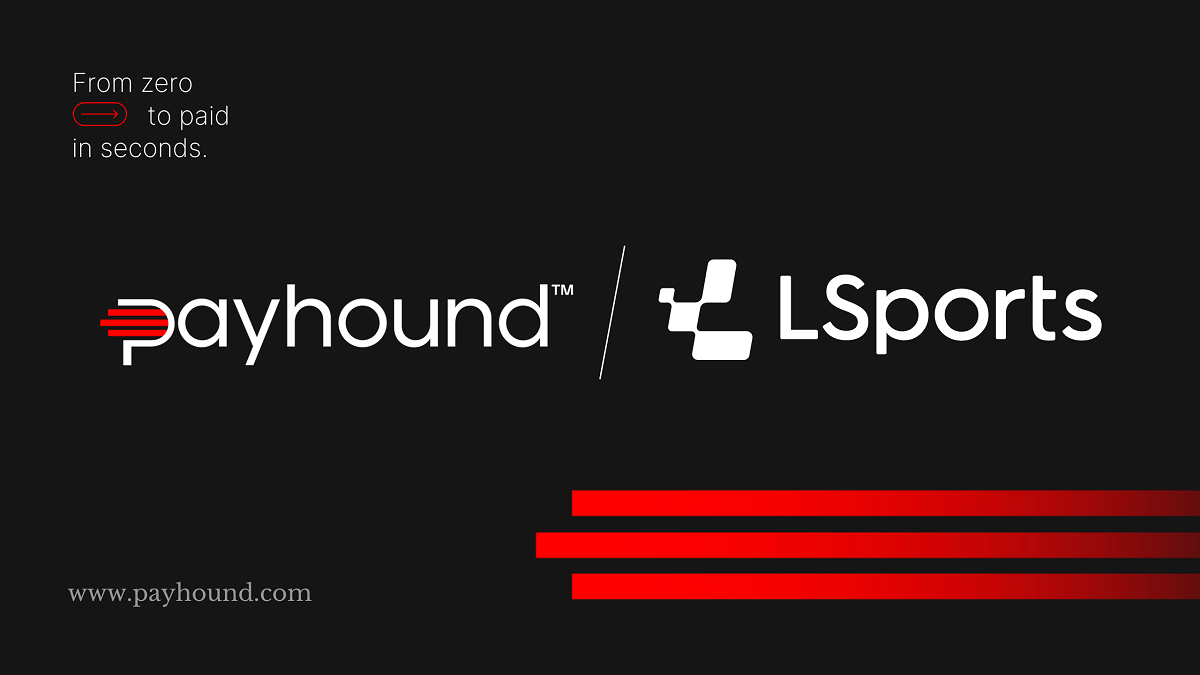

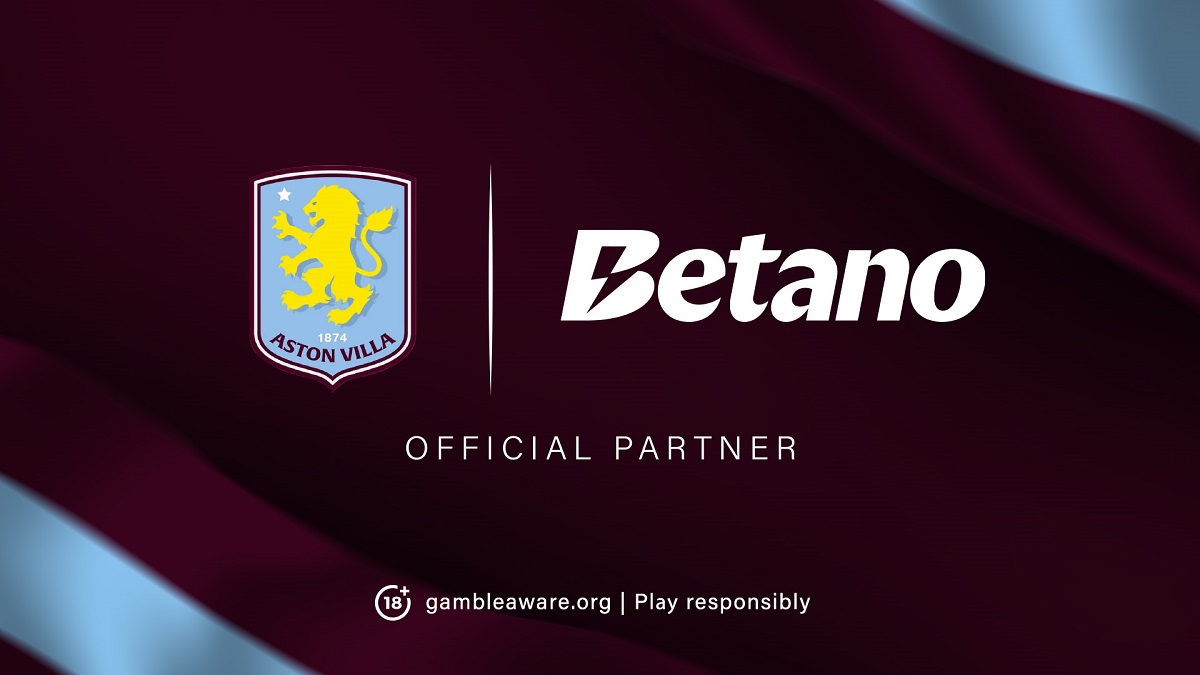


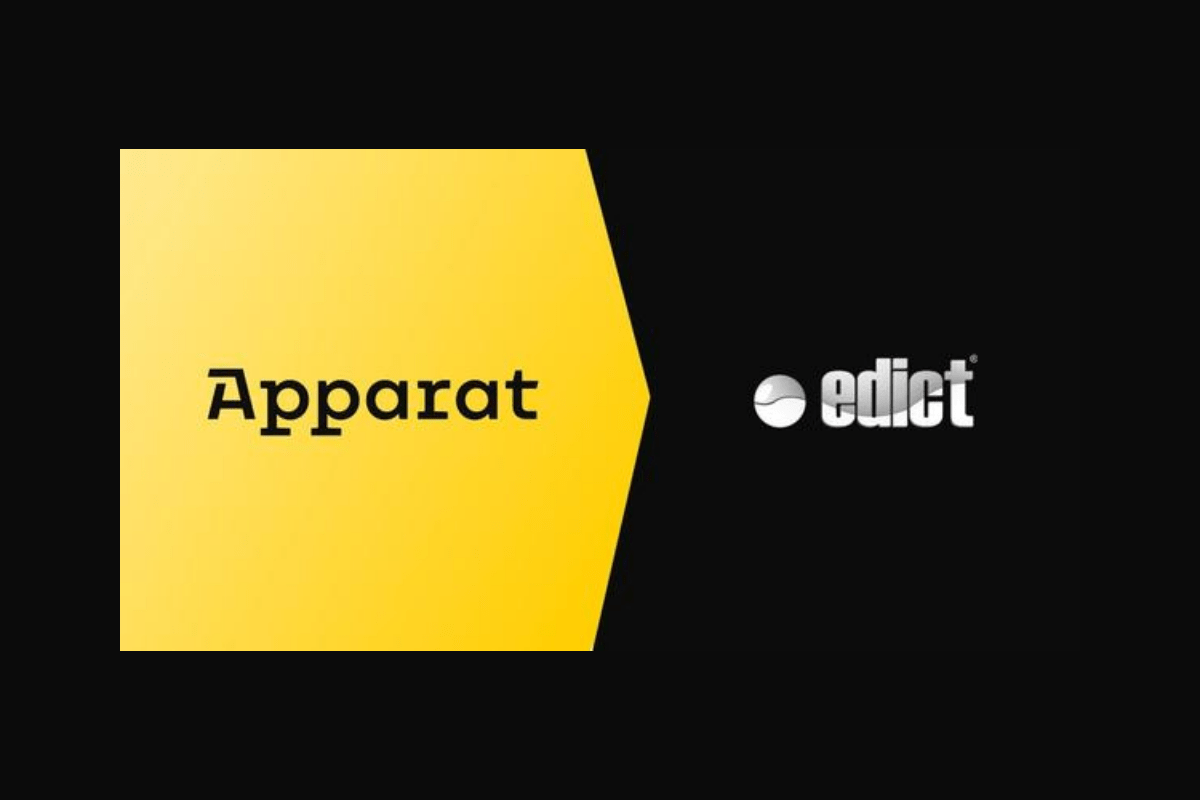
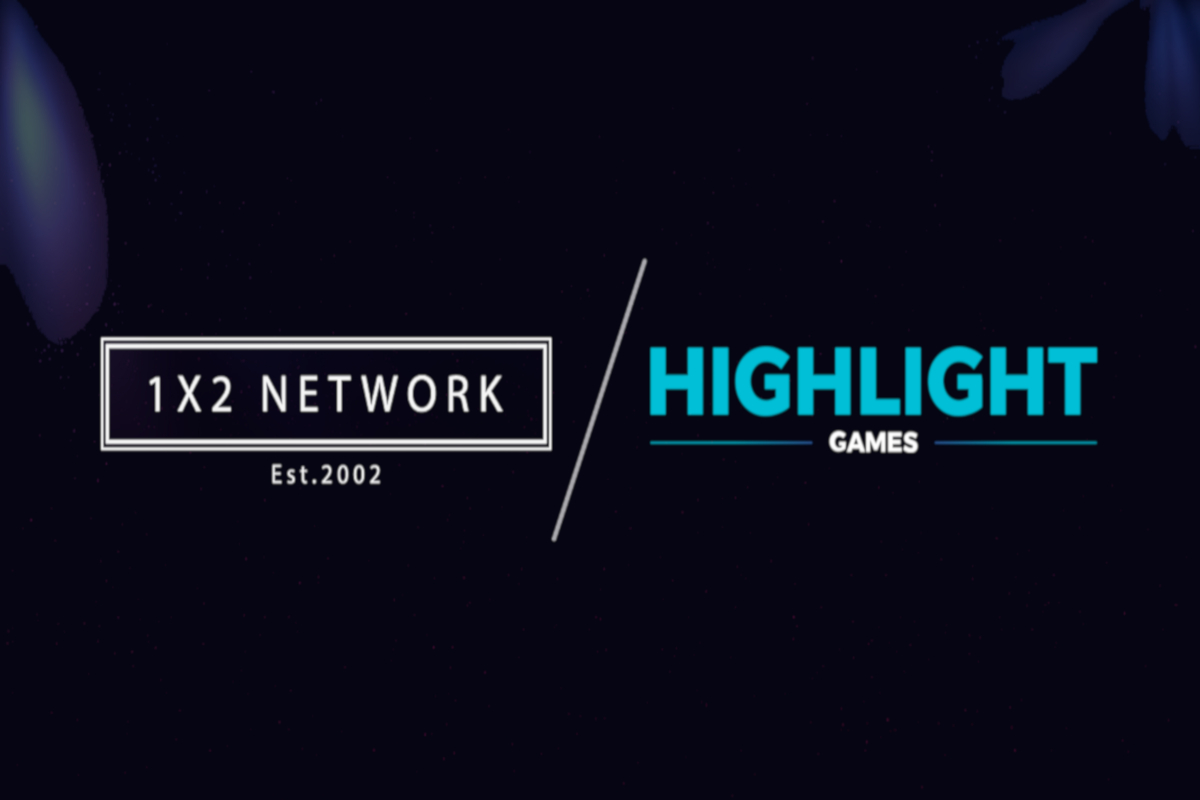
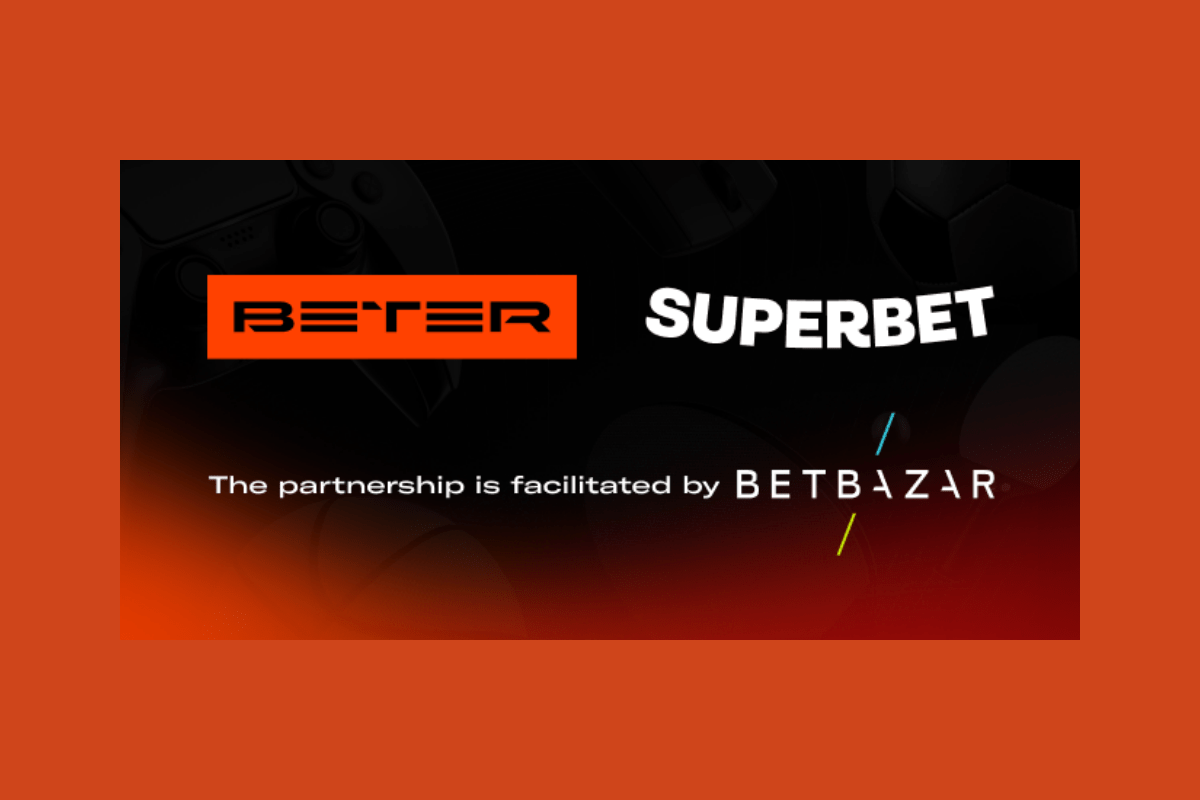






You must be logged in to post a comment Login